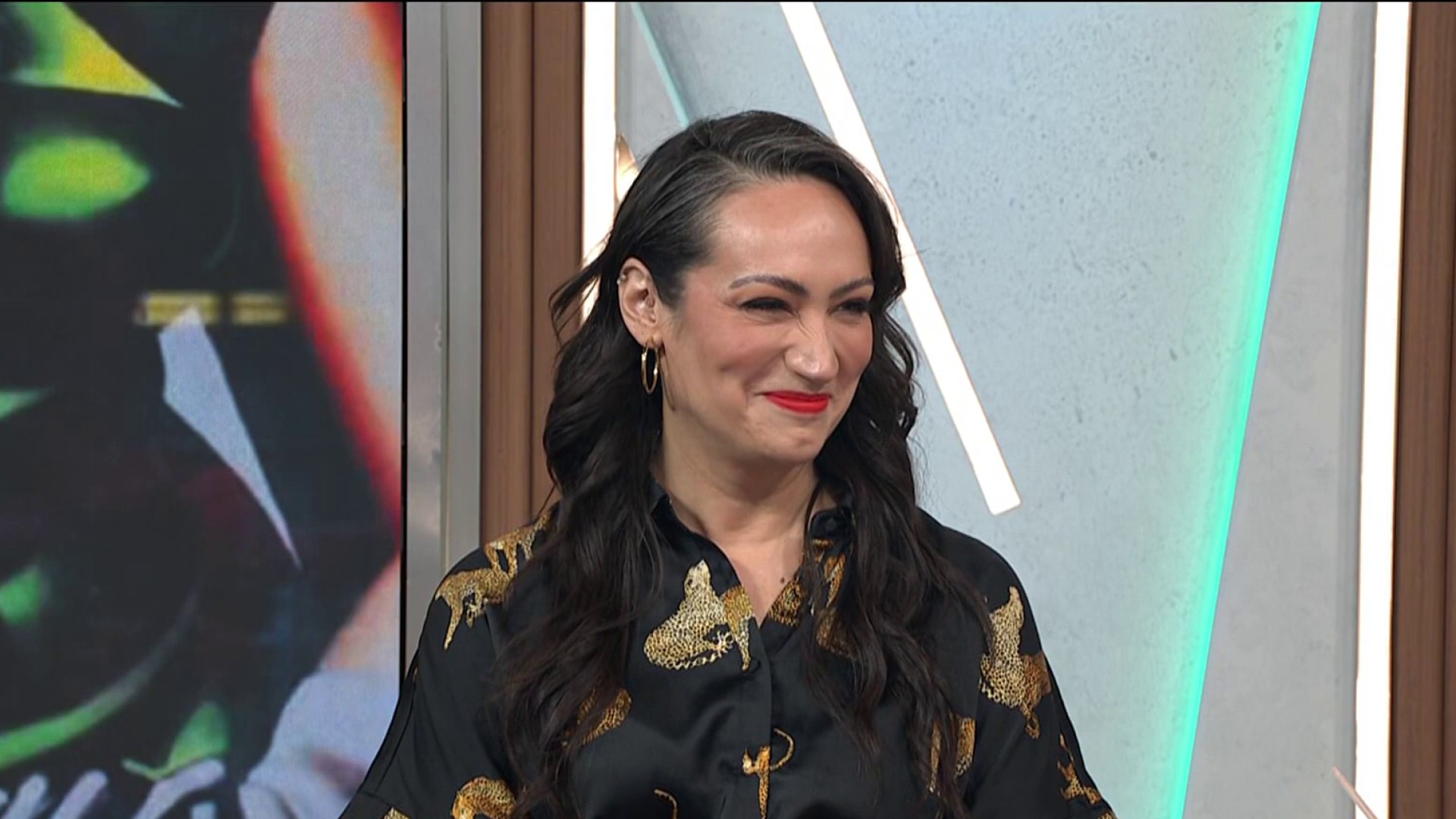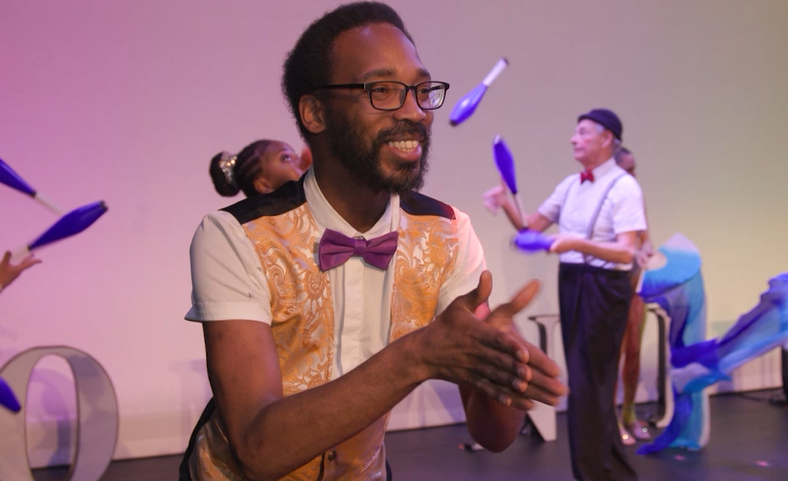Theatergoers walking into Studio 54 for the now-opened revival of “Cabaret” might be struck with a case of déjà vu. That’s because the Roundabout Theatre Company has produced an exact restaging of Sam Mendes and Rob Marshall’s 1998 Tony-winning production. From the Playbill cover design to the fringe on the lamps of the tables of the Kit Kat Klub, you’ll feel as if you’ve stepped into a time machine.
That’s not necessarily a bad thing. There’s a reason the ’98 revival was such a big hit, after all. Mendes and Marshall had reimagined John Kander and Fred Ebb’s classic musical, stripping away any glitz and glamor leftover from the 1972 film. Together with book writer Joe Masteroff, they gave us a dark, gritty take on “Cabaret” that amped up the sexual undertones in John Van Druten’s original play and Christopher Isherwood’s stories, forcing us to see the material in a whole new light.
But it’s also been 10 years since that “Cabaret” closed. And in those 10 years, there has been a shift in what our society deems as provocative. Why, look no further than down the street at the Belasco Theatre, where “Hedwig and the Angry Inch” -- a show that, in 1998, was an underground Off-Broadway cult hit deemed too edgy for Broadway -- is selling-out houses in a production led by an Emmy-winning, out gay actor. Times, they have a-changed. And suddenly the sexual aggressiveness of the 1998 “Cabaret” seems tame.
To put it another way: imagine watching Britney Spears’ “Baby One More Time” video for the first time today. Would you be as outraged by Spears’ sexy schoolgirl look having seen Miley Cyrus swing around naked on a wrecking ball?
Just because this “Cabaret” doesn’t carry the same shock value as it once did doesn’t mean we should strip this production of its worth. “Cabaret” is a seductive piece of theater, beautifully designed and with stellar performances throughout. Moreover the show’s story, about a seedy nightclub in 1930s Berlin and how the relationships of its patrons and neighbors are affected by the rise of the Nazi party, rings as poignant as ever.
Guiding us through ”Cabaret” is our androgynous, libidinous Emcee, played once again by Alan Cumming. Cumming continues to shine in the role that not only gave him his Broadway debut, but also won him a 1998 Tony Award. It’s a thrill to see his Emcee again, and when compared to his character on TV’s “The Good Wife,” should help you appreciate the range of talent Cumming has within.
Cumming’s Emcee is mischievous and funny as ever. But age has allowed Cumming to mature his character in ways we haven’t seen before. His Emcee is more in command now, and when he peers in on the action from the shallows, it feels less observant and more foreboding. Like he knows the inevitability of what’s ahead.
Broadway
Cumming is the only cast member reprising his role from the 1998 revival (save for ensemble member Kristin Olness, who returns as Helga), which helps keep this production fresh. Linda Emond (“Death of a Salesman”) and Danny Burstein (“Snow Geese”) are particularly strong as as Fräulein Schneider and Herr Schultz -- two lovers, her German and he Jewish, whose relationship is challenged by the politics of the time. These stellar actors make each moment count, and will break your hearts in “What Would You Do?” and “Married (Repirse),” respectively.
Bill Heck (Roundabout’s “Pig Farm") is a respectable Cliff, the American writer at the center of our story. But his character is the dullest of them all, and you’ll often forget about him the minute he leaves the stage.
And then there’s Michelle Williams’ stunning and heartbreaking portrayal of nightclub singer Sally Bowles. Like the late Natasha Richardson did in the ’98 revival, Williams strips away any of Sally’s polish, giving us a fragile creature whose life motto seems to be “Fake It ‘Til You Make It.” Only Sally’s not very good at faking it, especially when reality catches up to her fantasy.
It took me a bit to notice the nuance and layers the three-time Oscar nominee has built into Sally. I translated the initial hesitation in her performance as fear and inexperience. Only later did I realize the complexities. Williams’ voice is lush, for example, but she adds shaky moments to show us Sally’s internal insecurities. Throughout, Williams gives us these little crumbs of what becomes a tragic, beautiful character.
You’ll really see Williams’ true brilliance when she tackles the show’s title song. Williams brings us on an emotional journey -- from decadence to sadness, fear to regret, anger to despair, and eventually, doom -- all in the matter of a four minute song. It’s a tour-de-force performance, like watching a daisy wilt and die in a vase without water. I found myself wishing for a rewind button to go back and watch that moment again.
Ultimately, “Cabaret” is about survival -- about fighting for what you believe in, and celebrating diversity in a world of complacency. And while the ’98 revival may not feels as exciting as it once did, there’s still plenty of reasons to applaud.
“Cabaret” through Jan. 4 at Studio 54, 254 W. 54nd St. Tickets: $47-$162, not including holidays. Call 212-719-1300 or visit www.roundabouttheatre.org for tickets.



